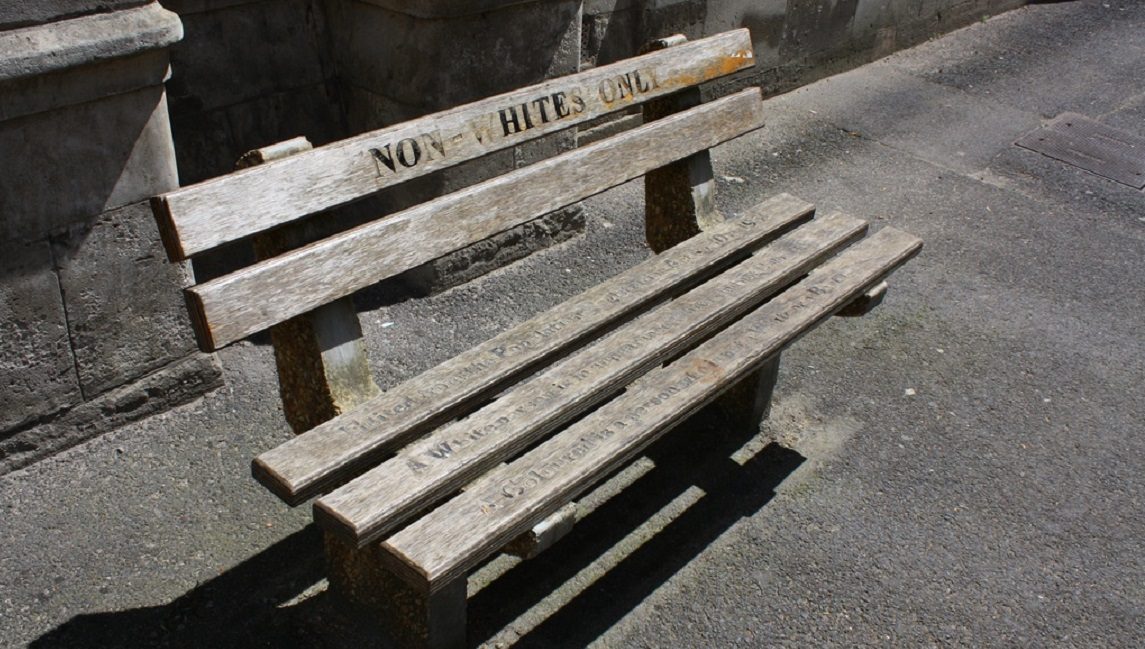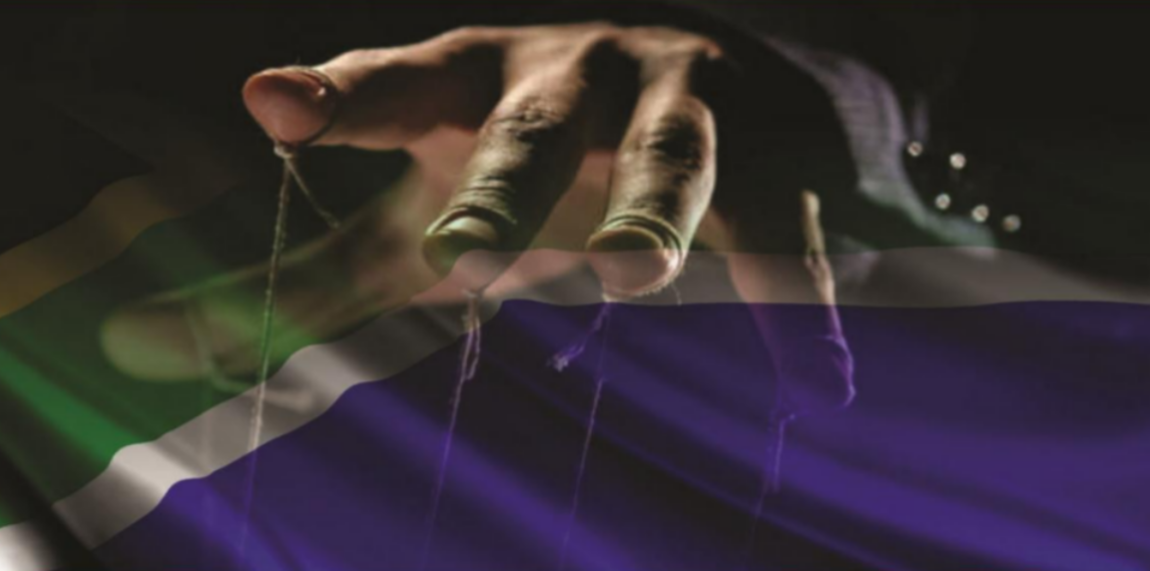The bigoted responses to local comedian Joey Rasdien’s controversial comment at the Ilm Arts Festival are a stark reminder of the racism and prejudice within Black communities in South Africa. Wanelisa Xaba reflects on her own experiences of racism in coloured communities.
I was born in Cape Town and I have lived there for most of my life. Last year, I moved to Joburg for about seven months. After two months, I had to return to Cape Town for a work meeting. Throughout my stay, I felt like someone had smacked me with a cold wet cloth across my face; being in Joburg for two months had enabled me to forget the violent ways in which coloured people treated me on a daily basis while navigating the streets of Cape Town as a Black person.
Let me backtrack a little. I went to “coloured schools” in previously “coloured areas” in Cape Town. This means that I have experienced my fair share of being called a “kaffir” on my way to school or on the school grounds. When I was seven, my cousin and I were waiting for my aunt to pick us up from school when a group of boys in Kensington chased us with a knife down the street. After my aunt tracked them down, the knife turned out to be a toy, but our trauma was real. On the playground, when you got into a fight with a coloured student, you had to mentally prepare yourself to be reminded that you are kaffir. In grade five, after a dispute, I was stabbed with a sharp pencil in my chest after a confrontation with a male student. At another school, coloured teachers continuously asked why we didn’t attend township schools if we insisted on being late and blaming Metrorail. The continuous comments about how ugly our “kaffir/krous hare” and unhygienic Black habits continued in high school.
As an adult, I constantly have to take taxis that go to Grassy Park, Manenberg or Mitchells Plain. I have anxiety every time I stop a taxi. I wonder, will I get into another argument? Will I get into another physical altercation with a taxi driver? Will I overhear a person say “die kaffir meisie dat bly by die double storey huis”? Will the driver mock my accent when I call out a street name? Will the whole taxi laugh and ridicule me in Afrikaans thinking I cannot understand or speak the language?
When I read the article about the parents who shut down Klipspruit Secondary School because they did not want a Black principal, my heart broke. I had flashbacks to various violent and dehumanising experiences I encountered growing up in Cape Town. My first instinct is to turn to anger and hate, to hurl the various insults I have taught myself as a defence mechanism throughout the years (which are very anti-Black as well). I don’t think this is useful.
I am very intentional about staying away from debates about the coloured identity. If a person says I must not address them as coloured but as Black, I apologise and address them accordingly. If another comrade says I must address them as khulid/kulid (as rebellion to apartheid racial constructions), I apologise and do as requested. If another person says not to use the term in front of them, I apologise and never use the term. I would like to acknowledge that I use the term problematically and that its root is anti-Black. The term is a white supremacist construction to divide and conquer people of colour. The term, along with all other racial categories, is a white racist invention that organised people into a racial hierarchy. Indian is better than coloured which is better than Black. All the while, the white man retains his supremacy while we hate and fight each other.
Identity politics are painful, fragile and tender in South Africa. Who are we? Personally, Blackness is a political identity I have assumed. Black Consciousness and decolonisation are tools to understand how my identity was constructed under white supremacy for a particular purpose in the empire. They are also tools I use to fight for my freedom and tools to destroy the system. Apartheid has not ended. In my opinion, Black people are those disenfranchised and marginalised under white supremacy. This means coloured people are also Black. And when I talk about Black liberation and reparations, I am also talking about coloured people. Even if your ancestors were slaves uprooted from Indonesia/India/the Islands, you deserve reparations. Again, these are my personal politics. It is not my place to prescribe or make commentary about the coloured identity. That would be arrogant. People must define themselves for themselves. This is part of liberation. I cannot impose myself on a diverse and complex community with multiple lineages and histories. My argument is simple, we must unite to defeat a common enemy that enslaves us.
However, I do think that there needs to be a conversation around anti-Blackness in the coloured community in South Africa. To close the doors of learning for young people because you do not want a Black principal at your school is violent and anti-Black. The argument posed is that coloured parents want a coloured principal because the school is in a coloured area. Again, the construction of neighbourhoods is a legacy of apartheid that sought to divide and conquer people of colour. This was also part of racist apartheid city planning that sought to put people of colour on the outskirts of the city. The idea of a “coloured area” is a direct result of apartheid. These are the tough conversations we need to have around the internalisation of white supremacy and decolonising the legacies of colonialism and apartheid. Unfortunately, we cannot have these conversations if we pretend like these problems don’t exist.
I have made a very deliberate decision not to write on social media about the various violent experiences I continuously encounter. Sometimes, I want to write a Facebook status and vent about how dehumanised I felt after getting off a taxi or after a heated argument because I was ignored while asking for help in a store. I want to say, “f- this.” Why do “you people” hate us so much? But I don’t think this would be useful either. But at some point, we need to have a conversation about the violent ways in which coloured people treat Black people and their hateful actions especially in Cape Town.
But the problem persists. Coloured people are offended and disgusted to be affiliated with Blackness. Blackness is inferior and subhuman. Even coloured people who have “Black features” experience this hatred. Therefore, a conversation needs to be had that contextualises the origins of our identities under (colonisation/apartheid) white supremacy. The internalisation of white racism and white supremacy which result in anti-Black attitudes. And this conversation needs to take into consideration that these identities were constructed for us to hate each other and to divide us. The conversation cannot further divide us nor continue to do the work of the enemy.
The conversation needs our activists and our comrades to do the work in their communities by educating people about the nature of white supremacy. To do the calling out of their family members, friends, pastors and other community members. Those who have power and a huge amount of followers to publicly criticise anti-Blackness. For artists/creatives to deal with these issues in their work. Never to be defensive. To educate people about proximity to whiteness and privilege in the coloured community. We need their commitment in holding their own communities accountable to anti-Blackness. To hold people accountable without shaming or talking down. And most importantly, to do the work of unlearning racism and relearning within ourselves first.
The views expressed in this article are the author’s own and do not necessarily reflect The Daily Vox’s editorial policy.
Featured image via Wikimedia Commons









